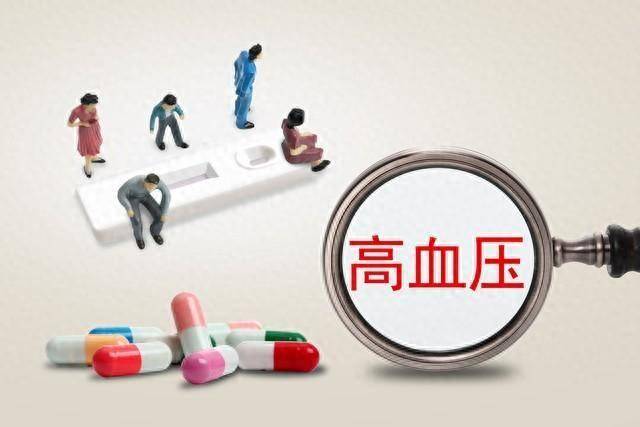Hypertension is a term that everyone is familiar with, and it is even considered a common occurrence. In recent years, as the number of hypertensive patients continues to increase, many people believe that it is difficult to avoid hypertension as they age. Due to the widespread acceptance of this idea, many people’s awareness of preventing hypertension has gradually weakened, no longer placing as much emphasis on prevention and control as in the past. This relaxed attitude is not only reflected in daily life but also particularly evident in the diet, being “carefree”.
Many people consume these “dangerous” foods without any hesitation. Little do they know that these unhealthy dietary habits can quietly affect health, gradually increasing the risk of developing hypertension and even potentially triggering serious complications, such as cerebral hemorrhage.
Diet plays a crucial role in controlling hypertension, yet many people have some misconceptions about hypertension diets, so today let’s understand more about it.
1. Strong Tea
Strong tea is a beverage rich in caffeine that many people enjoy in daily life. Although moderate tea consumption is beneficial to the body, strong tea may lead to elevated blood pressure. Strong tea contains higher caffeine content, and caffeine is a stimulant that can accelerate heart rate and increase blood pressure.
The mechanism of caffeine acts by stimulating the central nervous system, increasing the heart’s contraction force and rate, which may make blood pressure control more challenging. Therefore, hypertensive patients should try to avoid consuming strong tea and may choose low-caffeine tea or use light tea as a substitute.
2. Egg Yolk
Egg yolk is an undeniable high-nutrient food, but it is not a good choice for hypertensive patients. For hypertensive patients, egg yolk does have some unfavorable factors.
Egg yolk has a high content of cholesterol and saturated fatty acids, both of which are crucial in managing hypertension. A high-cholesterol diet may worsen atherosclerosis, thereby affecting vascular health and increasing the risk of cardiovascular events. Excessive intake of saturated fatty acids can also lead to elevated levels of adverse cholesterol in the blood, thereby worsening the condition of hypertension. Therefore, despite egg yolk containing abundant nutrients, hypertensive patients still need to carefully control its intake and may consider only consuming egg whites or reducing the frequency of egg yolk consumption to maintain stable blood lipid and blood pressure levels.
3. Chicken Soup
Chicken soup is often regarded as a nutritious food helpful for body recovery, especially during colds and postoperative recovery. However, the high sodium content in chicken soup may have adverse effects on hypertensive patients. Sodium is an important factor in causing hypertension, and excessive sodium intake can lead to water-sodium retention in the body, increase blood volume, and consequently raise blood pressure.
During the preparation of chicken soup, a large amount of salt is often added to enhance the flavor, making chicken soup part of a high-sodium diet. Hypertensive patients should minimize their intake of chicken soup. If necessary, they can choose a low-sodium version or control the salt content when preparing it at home.
4. Potatoes
Potatoes are a starchy tuber food rich in nutrients and loved by many. However, the high starch content in potatoes may lead to a rapid increase in blood sugar levels, indirectly affecting blood pressure stability.
Of course, many people enjoy various delicacies made from potatoes, such as French fries, chips, and so on. For hypertensive patients, such foods are not beneficial for health. Therefore, hypertensive patients should avoid consuming fried potatoes or chips. Instead, they can opt for steaming or baking methods to cook potatoes, thus retaining their nutritional value and effectively reducing fat and salt intake, aiding in better blood pressure control. Hypertension is indeed becoming increasingly common in modern society and should receive more attention, especially regarding dietary taboos for patients. Adjusting dietary structure, choosing low-caffeine tea, consuming less egg yolk, controlling sodium intake, and moderate consumption of potatoes are key to preventing hypertension.


